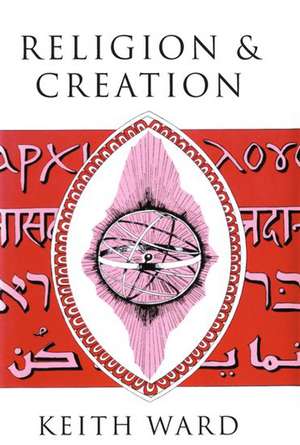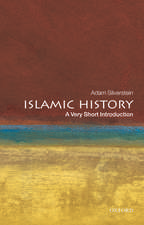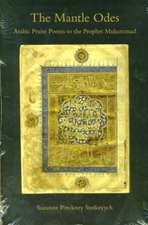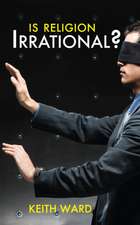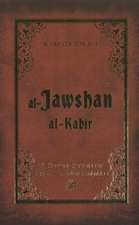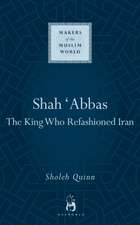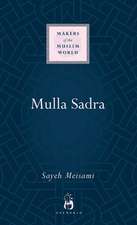Religion and Creation
Autor Keith Warden Limba Engleză Hardback – 20 iun 1996
| Toate formatele și edițiile | Preț | Express |
|---|---|---|
| Paperback (1) | 831.14 lei 31-37 zile | |
| Clarendon Press – 20 iun 1996 | 831.14 lei 31-37 zile | |
| Hardback (1) | 354.36 lei 31-37 zile | |
| Clarendon Press – 20 iun 1996 | 354.36 lei 31-37 zile |
Preț: 354.36 lei
Preț vechi: 512.59 lei
-31% Nou
Puncte Express: 532
Preț estimativ în valută:
67.81€ • 70.97$ • 56.44£
67.81€ • 70.97$ • 56.44£
Carte tipărită la comandă
Livrare economică 19-25 martie
Preluare comenzi: 021 569.72.76
Specificații
ISBN-13: 9780198263937
ISBN-10: 0198263937
Pagini: 360
Dimensiuni: 145 x 227 x 25 mm
Greutate: 0.59 kg
Editura: Clarendon Press
Colecția Clarendon Press
Locul publicării:Oxford, United Kingdom
ISBN-10: 0198263937
Pagini: 360
Dimensiuni: 145 x 227 x 25 mm
Greutate: 0.59 kg
Editura: Clarendon Press
Colecția Clarendon Press
Locul publicării:Oxford, United Kingdom
Recenzii
a project in several volumes that is systematic in its coverage of belief ... remarkable project ... Ward engages critically with a range of sources ... Ward presents a persuasive picture of the physical universe as 'an expression of the mind and heart of God' ... he has illuminated a range of difficult issues where Christians, including theologians, feel particularly unsure ... The three volumes so far published are a remarkable achievement and seal Keith Ward's reputation as the most productive and constructive theologian writing in English today.
the style is not polemical; it is thoughtful and even when critical is courteous and reasonable ... I am glad to have read this book. I have gained much from it; it is serious and thoughtful. But is has also left me with a deeper appreciation of our Lord's meaning in Matthew 11:25f.
The enterprise is much to be commended. There is everything to be said for a fresh sustained exploration of the key elements in theistic religion by a skilled philosopher of religion ... The strength of this book lies in its exemplification of sustained philosophical argument on theological topics.
There is much good sense here...He gives overriding importance, in setting out his ideas about God the Creator, to certain human values, in particular the need to preserve creaturely freedom in reciprocal interaction with God. These values predispose his theology. The result is the creation by him of a remarkably anthropomorphic God, who has a history, whose will can be thwarted, and who consequently has feelings of frustration as well as of delight.
Ward's book is as fine an example of contemporary philosophy of religion, in the tradition of British empirical philosophy, as one is lilkely to find. After Rosenzweig, it is a gust of fresh air.
Here is an excellent continuation of Keith Ward's project of looking at major concepts of faith in some main scriptural religions. The last chapter constitutes a magisterial critique of contemporary essays on the Trinity which is, like the writings of David Jenkins, rather more orthodox than it appears to be. It is not easy to be neutral about this sort of tour de force. I think its advantages easily outweigh its disadvantages, making its author one of the most creative theologians in Britain today.
Here is an excellent continuation to Keith Ward's project of looking at major concepts of faith in some main scriptural religions. It is not easy to be neutral about this sort of tour de force. I think its advantages easily outweigh its disadvantages, making its author one of the most creative theologians in Britain today.
he deals delightfully with some of the needless confusions that abound in the writings of Tillich and McFague ... It is difficult to review books that one finds completely convincing. In my judgement on all the central questions, Ward is entirely right.
the style is not polemical; it is thoughtful and even when critical is courteous and reasonable ... I am glad to have read this book. I have gained much from it; it is serious and thoughtful. But is has also left me with a deeper appreciation of our Lord's meaning in Matthew 11:25f.
The enterprise is much to be commended. There is everything to be said for a fresh sustained exploration of the key elements in theistic religion by a skilled philosopher of religion ... The strength of this book lies in its exemplification of sustained philosophical argument on theological topics.
There is much good sense here...He gives overriding importance, in setting out his ideas about God the Creator, to certain human values, in particular the need to preserve creaturely freedom in reciprocal interaction with God. These values predispose his theology. The result is the creation by him of a remarkably anthropomorphic God, who has a history, whose will can be thwarted, and who consequently has feelings of frustration as well as of delight.
Ward's book is as fine an example of contemporary philosophy of religion, in the tradition of British empirical philosophy, as one is lilkely to find. After Rosenzweig, it is a gust of fresh air.
Here is an excellent continuation of Keith Ward's project of looking at major concepts of faith in some main scriptural religions. The last chapter constitutes a magisterial critique of contemporary essays on the Trinity which is, like the writings of David Jenkins, rather more orthodox than it appears to be. It is not easy to be neutral about this sort of tour de force. I think its advantages easily outweigh its disadvantages, making its author one of the most creative theologians in Britain today.
Here is an excellent continuation to Keith Ward's project of looking at major concepts of faith in some main scriptural religions. It is not easy to be neutral about this sort of tour de force. I think its advantages easily outweigh its disadvantages, making its author one of the most creative theologians in Britain today.
he deals delightfully with some of the needless confusions that abound in the writings of Tillich and McFague ... It is difficult to review books that one finds completely convincing. In my judgement on all the central questions, Ward is entirely right.
